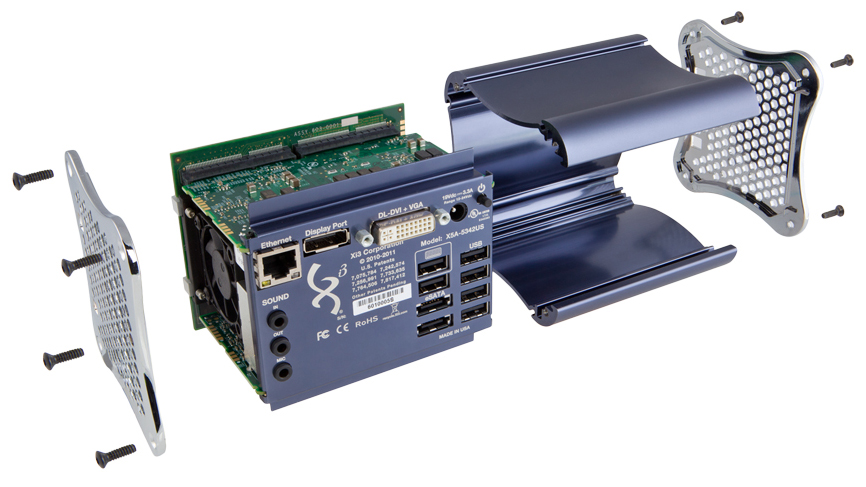Is Steam Box a product without a market?
Valve's streaming device won't please PC gamers or the console crowd

Valve has long been the bringer of many things good in the PC world, and now it looks to extend its dominance to console fans with the Steam Box.
But is there really a market for this technology?
The vision for the Steam Box is an odd one, although the objective is clear: build a hybrid of the home console and the PC, powered by Linux and Steam's console-style Big Picture mode.
That's fine. Valve is a brilliant company, and if anyone can take a bad idea and make it golden, Valve can. The problem is this: who is the Steam Box supposed to appeal to?
Persuading PC gamers
From the perspective of a PC gamer, the Steam box essentially offers a load of stuff they already have access to. It's a small PC that costs more than the small PC they already have (Steam Box's estimated RRP is between $499 and $999), while delivering less bang for said buck.
Sure, you can upgrade the thing, but with the very specific parts you'll need to buy (as opposed to current standardised PC hardware), who knows how much damage that's going to inflict on your wallet?
Furthermore, looking at the specifications for the Xi3 modular computer that was shown as a Steam Box prototype at CES, we can see that the overall power of the base unit is pretty underwhelming. Digital Foundry's overview used Battlefield 3 as an example, saying that the machine would be able to run it at low settings at a paltry 720p, which isn't even up to par with the console version.
Sign up for breaking news, reviews, opinion, top tech deals, and more.
Alas, Valve's Gabe Newell has even spoken of plans to make all Steam games compatible with controllers, and that says it all: the Steam box is far more console than PC, and that's going to be a huge turn-off for a lot of consumers.
Multiple screens?
Newell has claimed a single Steam Box could stream games to multiple screens. That sounds like a great idea, so long as you're OK with being limited to (great) games like Awesomenauts or other resource-light classics, because I can guarantee you won't be having Starcraft 2 parties with a single Steam Box.
So the Steam Box won't win over PC gamers, but can it take the affections of the console crowd? I suspect not. The console space is already overpopulated. Between the soon-to-come PS4 and Xbox 720, Wii U and even the Wii (still outselling its successor), the console market is chock full of machines that let us keep ourselves busy, whether playing games or surfing the internet.
The money issue pops up again on the console side, and even reaches into the realms of performance. If you've ever looked at the specs of a console you'll notice they're surprisingly feeble in comparison to even the most modest modern desktop computer, and yet they play all the same games at somewhere approaching similar quality. This is because developers tailor their games to the specs of each console to ensure they get the most out of them, as opposed to the PC, which has to rely entirely on the merits of its hardware.
Price problems
The price point we're looking at here is actually for the models the Steam box will be based on, and no doubt the price will change as Valve tweaks the specs, but with this type of system the trade-off between power and price is crucial. I can't see gamers, hardcore or casual, throwing away wads of cash to get a hold of a machine that, at best, will let them play the same old games at a lower level of quality.
Having a range of models for different performance needs is a good start, but when the basis for your platform costs far more than its competitors and can't keep up with those competitors in terms of performance, then I'm afraid you're barking up the wrong tree. When on top of that all your competitors have been in the public consciousness for over a decade, you're in the tree with a rope around your neck, taunting them to push you off.
I'd love to see Valve knock this out of the park, but the market simply isn't there. Maybe there's a niche comprised of people who want to get into PC gaming but find the whole process of obtaining a decent PC horrifying, but are they really enough to carry a product? Enough to carry a brand?
I guess we'll have to wait and see, but right now it sounds like Valve is full of hot air.